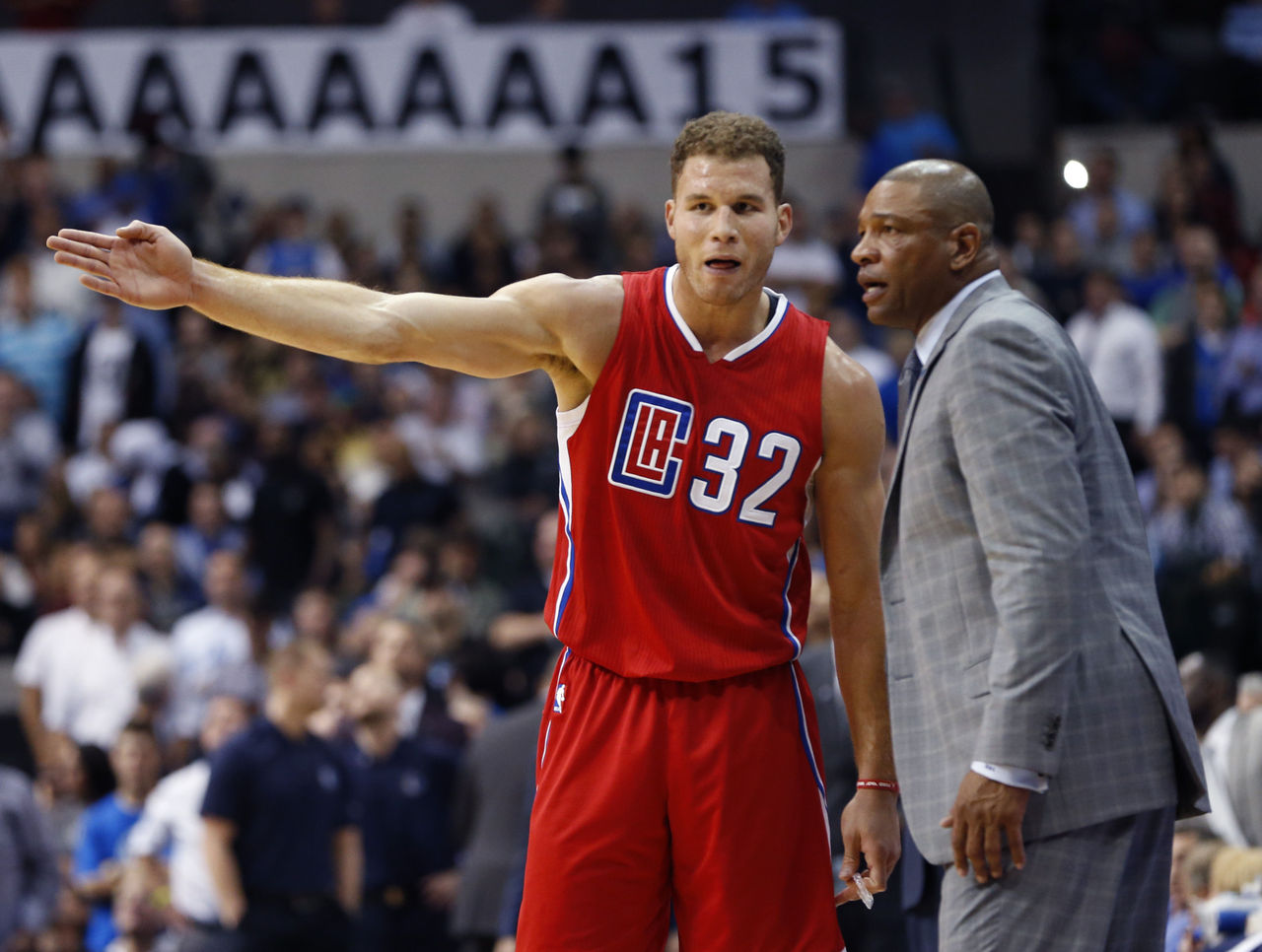The case for keeping the Clippers together
In the immediate aftermath of yet another disappointing playoff exit - one in which another star injury played a part in derailing the Clippers' postseason hopes - the narrative around Los Angeles will be predictable.
After six years together, the trio of Chris Paul, Blake Griffin, and DeAndre Jordan - a trio which has produced just three playoff series victories - must be broken up.
Paul and Griffin can (and almost certainly will) exercise early termination options to become unrestricted free agents this summer, joining J.J. Redick, Luc Richard Mbah a Moute (player option), Marreese Speights (player option), Raymond Felton, Brandon Bass, and Alan Anderson as potential UFAs departing L.A. come July.
Keeping the band together, particularly the core four of Paul, Griffin, Redick, and Jordan, will send the Clippers soaring into the luxury tax while committing to an aging group that hasn't made a single conference finals appearance during its time together.
But what's the alternative? Whether it's a patient, full-blown rebuild, or a more modest retooling, the Clippers' long-term goal would simply be to return to where the franchise currently resides - becoming a perennial 50-win team led by a transcendent talent that goes into every season with at least a puncher's chance at a championship.
The case for stability

(Photo courtesy: Action Images)
Postseason results aside, this isn't an underwhelming team stuck on the treadmill of mediocrity that needs to figure out which way they're trending. Since Paul joined Griffin and Jordan in 2012, only the San Antonio Spurs and Golden State Warriors have won more regular season games than the Clippers, who are one of only four teams to make the playoffs in each of the last six seasons.
To put that in perspective, the Clippers had made the playoffs six times in the previous 36 years before CP3 arrived, a run of futility that dated back to the franchise's time in Buffalo (two moves ago).
There are questions to be asked about the mental makeup of a team that imploded so spectacularly in 2014 and 2015, and one which employs a star who nearly capsized the following season by breaking his hand on a team staffer's face. And then there's the question of Doc Rivers, whose apparent incompetence as a team executive has clearly hindered the abilities of Rivers the coach, giving Doc suspect depth to work with behind his stars, and leaving the cupboard of future draft picks uncomfortably bare.
But the fact remains that when Paul, Griffin, Jordan, and Redick share the court, the Clippers are just about as good as anybody.
"We feel like we match up with everybody. When we're healthy, I like our odds," Griffin told theScore after a February loss in Toronto without Paul.
Case in point, among the 97 different four-player combinations that logged at least 500 minutes together this season, only the Warriors produced more effective lineups.
Compared to previous seasons, the Clippers are as good or better than ever with their main guys on the floor pic.twitter.com/hXD5Onw6MO
— ASAHDithya (@brownasthenight) April 14, 2017
Paul and Redick are on the wrong side of 30, and Griffin hasn't cracked the 70-game mark in a season in three years, so expecting the quartet to find healthier stability in the future might be fool's gold, and contracts they sign this summer could look ugly on the back end. Should Paul, Griffin, and Redick all want to return, however, rest assured the front end of those contracts will deliver more 50-55-win seasons, and at least another year or two of the type of title hopes the majority of the league can only dream of.
Outside of possessing the Warriors' once-in-a-lifetime collection of talent or being the team lucky enough to employ LeBron James, the best an NBA team can do is put together a roster capable of taking advantage of any Warriors/Cavs missteps. There are perhaps a handful of those teams, and the Clippers will continue to be one of them if they re-sign Paul, Griffin, and Redick.
That shouldn't be lost in a rush to eulogize Lob City.